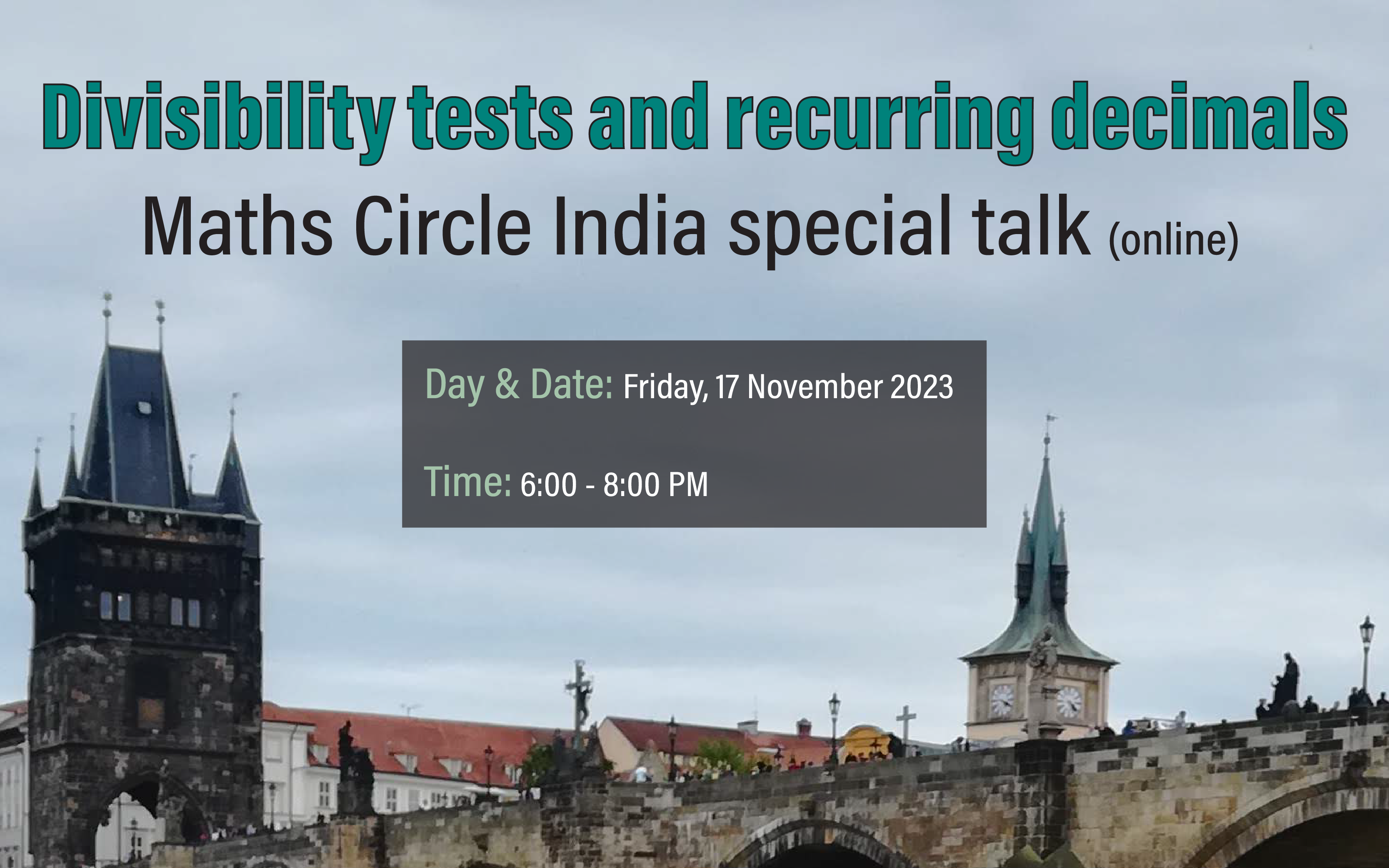
Abstract:
If we had two extra thumbs, how would we check if "2024" is divisible by eleven? Or by "11"? We will see a simple test in any base B, i.e. usable by species having any number of fingers (whether shaped like hot dogs or not); and for any divisor d. That is, the test works for everything (d), everywhere (B), all at once.
Moving to recurring decimals: note that 1/3 = 0.3333… and 1/3x3 = 0.1111… have the same number of digits - one - in their recurring parts. (Is 3 the only prime with this property in base-10?) More generally, we will see how many digits 1/d has in its recurring “decimal” expansion, for us or for any species as above. Finally, we will see a 96-year-old conjecture of Emil Artin, that holds for at least two bases among 2, 3, 5, 7 - but even today we don't know which!
About the Speaker:
Apoorva Khare is an Associate Professor of Mathematics at the Indian Institute of Science (IISc), Bangalore, and a member of the Analysis & Probability Research Group. After a BStat from ISI Kolkata and MS+PhD from the University of Chicago, he worked at the University of California at Riverside, Yale, and Stanford before returning to India and joining IISc. Apoorva is a Ramanujan and Swarna Jayanti Fellow of SERB and DST, a Fellow of the Indian Academy of Sciences, and a recipient of the Shanti Swarup Bhatnagar Prize (CSIR). Apart from many papers, he has written two Maths books, including one on real-world pre-calculus non-trig mathematics, that arose from a course he introduced at Yale.
Eligibility:
Students in grades 6 through 12 with a keen interest in mathematics.

